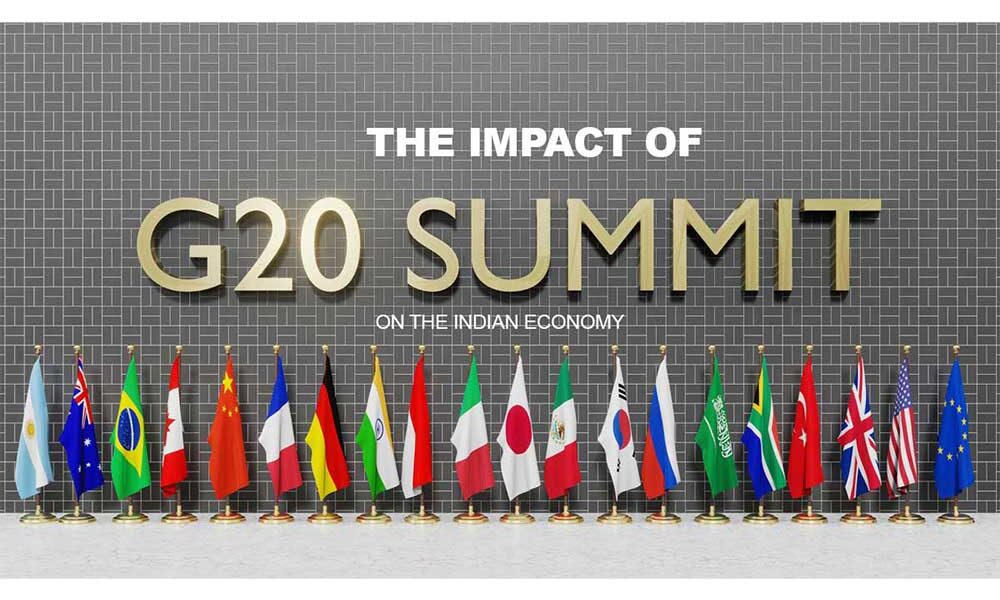🌍 Exploring the Impact of G20 Summits on India’s Economy 🇮🇳
The G20 Summit, an annual gathering of world leaders from the major economies, has become a crucial platform for shaping global economic policies. These summits bring together heads of state and policymakers to discuss critical issues such as international trade, financial stability, and sustainable development. While the specific impact of each G20 Summit varies, they often have far-reaching implications for participating countries, including India. In this blog post, we will explore the potential effects of G20 Summits on the Indian economy, considering past experiences, anticipated outcomes, and the broader global economic landscape.
Economic Policy Coordination: One of the significant benefits of the G20 Summit is the opportunity for economic policy coordination among participating nations. Through dialogue and negotiations, countries can align their strategies and actions, fostering cooperation and stability. For India, this coordination can be particularly beneficial, given its position as one of the world’s fastest-growing economies.
Trade and Investment Opportunities: The G20 Summit often addresses trade-related matters, including reducing barriers, promoting fair trade practices, and enhancing investment flows. As India is heavily reliant on international trade, any agreements or commitments made during the summit can have a profound impact on its economic prospects. Increased market access, reduced trade restrictions, and improved investment environments can provide a significant boost to India’s export-oriented industries and attract foreign direct investment.
Infrastructure Development: Infrastructure development is another crucial area discussed during G20 Summits. Investment in infrastructure not only stimulates economic growth but also fosters connectivity and regional integration. In the case of India, an emphasis on infrastructure development can help address bottlenecks, enhance transportation networks, and promote sustainable urbanization. Improved infrastructure can attract domestic and foreign investment, facilitate trade, and create employment opportunities, thus positively impacting India’s overall economic performance.
Climate Change and Sustainable Development: G20 Summits increasingly prioritize discussions on climate change and sustainable development. These summits provide a platform for countries to address environmental challenges collectively and promote sustainable practices. For India, a country facing significant environmental concerns, collaboration with other nations in areas such as renewable energy, clean technology, and climate finance can support its sustainability goals and transition towards a greener economy.
Bilateral and Multilateral Engagements: Apart from the official summit proceedings, G20 Summits facilitate bilateral and multilateral engagements between leaders. These interactions can lead to potential collaborations, partnerships, and investment opportunities. For India, forging alliances and strengthening relationships with other G20 economies can open doors to new markets, technology transfers, and knowledge sharing, thereby influencing its economic growth and development.
While the specific impact of each G20 Summit on the Indian economy can vary, these gatherings hold significant potential to shape India’s economic landscape. The coordination of economic policies, trade and investment opportunities, infrastructure development, sustainable practices, and bilateral engagements can all contribute to India’s growth trajectory. However, it’s essential to consider that the ultimate impact will depend on the specific outcomes, subsequent actions by the Indian government, and the evolving

